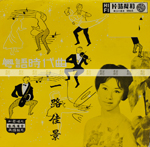In the time when Wong Jum-sum grew up, Cantonese pop music was but one of many kinds of music broadcast on radio. In a society where over 80% of the population spoke Cantonese, that came as a major surprise. Wong has a simple explanation for this. Cantonese pop grew out of traditional Cantonese music, but it could not build on the popularity of the latter in the face of severe competition. Compared to Western or Mandarin pop, it lagged behind in the areas of composition, lyrics, singing, accompaniment, recording, distribution, and marketing. Its competitors had a head start in talents, organization, and technology that took Cantonese pop more than a decade to come close.
Not everyone agrees with Wong’s diagnosis. Other scholars argue Canto pop, even in such early days, had a unique vibrancy that came from a healthy disregard of the boundaries among different traditions and genres, be they local or foreign. Early Canto pop laid a solid foundation for modern Canto pop, which went on to dominate not only Hong Kong but most Chinese communities around the world.
The story of Cantonese pop awaits careful re-writing.


作曲︰梁樂音
作詞︰吳一嘯
主唱︰林鳳、麥基
麥︰我係我係
我係東方嘅 貓王
彈得輕鬆 唱得瘋狂
玩幾下搖擺Rock
撚幾句牛仔腔
搖又試搖真係爽
擺又試擺暈大浪
合︰青春樂 我哋學貓王
青春樂 跳得要瘋狂
麥︰我係我係
我係東方嘅 貓王
彈得輕鬆 唱得瘋狂
林︰我都愛搖擺Rock
我都愛牛仔腔
歌唱最快樂
跳舞不荒唐
合︰青春樂 我哋學貓王
青春樂 跳得要瘋狂
林︰青年人最愛青春樂
青春之樂味如糖
青春一去留不住
青年莫負好春光
合︰青年莫負好春光
























